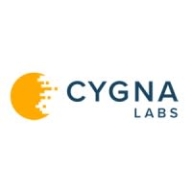


Find out what your peers are saying about BlueCat, Infoblox, NetBox Labs and others in IP Address Management (IPAM) Tools.
| Product | Market Share (%) |
|---|---|
| BlueCat Integrity | 15.4% |
| Infoblox IPAM | 31.5% |
| Cygna Diamond IP Platform | 4.9% |
| Other | 48.2% |



| Company Size | Count |
|---|---|
| Small Business | 4 |
| Midsize Enterprise | 2 |
| Large Enterprise | 19 |
| Company Size | Count |
|---|---|
| Small Business | 4 |
| Large Enterprise | 14 |
BlueCat Integrity is a comprehensive DNS security solution that provides visibility and control over all DNS traffic on your network. It offers real-time threat detection and response, as well as policy enforcement to ensure compliance with security standards. With its advanced analytics and reporting capabilities, Integrity enables you to identify and mitigate security risks before they can cause damage. It also integrates with other security tools to provide a complete security ecosystem. Whether you're a small business or a large enterprise, BlueCat Integrity can help you protect your network from DNS-based attacks and ensure the integrity of your DNS infrastructure.
Cygna Diamond IP offers comprehensive IP address management tailored for business needs. Its advanced capabilities streamline and secure network infrastructures efficiently, providing robust solutions for managing IP spaces.
As a trusted tool, Cygna Diamond IP addresses market demands with comprehensive IP address management through streamlined operations. Its versatile features allow businesses to maintain optimal IP address allocation, tracking, and configuration, ensuring smooth and efficient network operations. Cygna Diamond IP enables users to easily manage changes, monitor activity, and enforce policies across their networks.
What are the key features of Cygna Diamond IP?
What benefits should users consider from reviews?
Cygna Diamond IP is implemented across industries like telecommunications, financial services, and healthcare, where managing vast networks and ensuring security are critical. Its adaptability to specific industry requirements makes it valuable for maintaining efficient and secure network operations.
With Infoblox IPAM (IP address management) and DHCP, you can automate and centralize all aspects of IP address provisioning and DHCP server management in conjunction with DNS. Infoblox’s integrated platform enables you to confidently handle your most challenging IPAM and DHCP requirements in every type of network environment, data center and hybrid cloud environment. Infoblox IPAM enables your teams to increase network agility and responsiveness, so you can boost the efficiency of core network operations. Thanks to clear visibility into network operations, you can automatically detect and quarantine rogue devices, lower security risks and prevent outages.